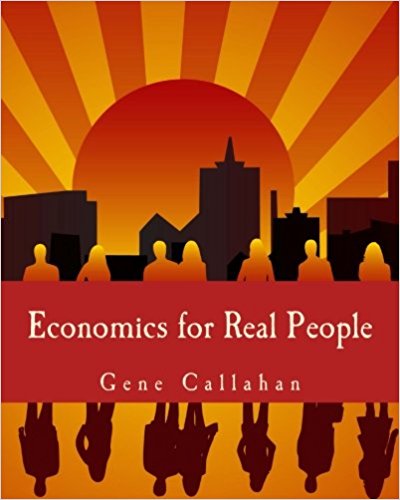This book was very exciting for me to read. To understand why, I have to tell you a little about myself.
When I was in college and grad school, I had the normal socially-acceptable, mostly leftist, views of the economy. I bemoaned that nasty profit motive and thought the government should/would/could fix everything.
When I came back to the US after living in Japan, I was craving international news. Seeing that domestic sources of international news were mostly a joke, I subscribed to The Economist. In addition to the international politics and science section, I also started reading the business and finance sections. At first, I could barely undertstand anything. Over the years, I slowly started to understand what they were talking about.
At the same time, I read The Essays of Warren Buffett. Then it all fell into place (allocation of capital!). Until then, I had never invested, never participated in the stock market. Because it’s stupid, right? One day, a stock crashes, and the company is worthless. But they have the same number of factories, the same employees, the same bank accounts as the day before. So how could the value of the company change?
Combining Buffett with the insights from The Economist, I finally understood economics. And I was embarrassed. I realized my opinions when I was in school were completely ignorant. At that time, I realize now, I hadn’t even the foggiest inkling of how our economy works. I remember telling friends how embarrassed I was that I hadn’t even had a modicum of understanding of the mechanism that supports all of our lives.
I mulled over my new understandings a lot, and did lot’s of thought experiments in my head over the years, wondering about the difference between wealth and money, the true nature of inflation, the effect of taxes on prosperity, etc. What I concluded usually bore little resemblance to the conventional wisdom, however, and for the most part I kept my thoughts to myself. I also came to realize that pretty much every choice an individual makes is an economic choice. We all know way more about economics than we think we do.
Many (many) years later, I now read Economics for Real People, a book about the Austrian School of economics. After a chapter or two, I was blown away with the thought: “holy crap, I invented Austrian Econonics!!” Well, what I mean is I came to many of the same conclusions, and even used some of the same thought experiments, that this academic tradition uses.
Ok, enough about me. This is supposed to be a book review! The book is really nicely written and very easy for an “intelligent layman” to understand. There’s no math (after all, it’s Austrian!) and the approach is very down-to-earth. To give you a feel of the philosophy the school has, here are a handful of choice quotes:
Economics is not a theory of everything, but simply a theory of the consequences of choice.
Yes! And you don’t need a deep math background:
Our chief tool in studying economics is our knowledge of what it is to be human, to prefer certain outcomes to others, and to act to bring about those preferred outcomes.
So all of us are economists! People who feel modern economics focuses too much on growth as defined by quantities of money might feel some warmth from this statement:
Who is to say if a town is wealthier located next to a prosperous factory or next to a beautiful forest? Am I wealthier if I have more cash in the bank or more time to spend with my children? The insights of the Austrian school demonstrate that economics can’t answer those questions for us.
Yes, only you can answer those questions, and only for you – you can’t answer them for someone else. You can’t decide whether someone else “should” live in the beautiful forest town or in the industrial city, and you certainly can’t force them to do one or the other (but now we digress into libertarianism).
And of course the dangers of government intervention:
The more my economic well-being is determined by the political process, the more likely it is that I’ll increase profits by lobbying than that I’ll increase profits by producing. Futher, the more my neighbors are using political pressure, the less resistant I will be to the idea of doing so.
Finally, the book has interesting chapters on interfering with people’s choices, like socialism, regulation, government promotion of industry, price and wage controls, etc.
All in all, this is a great, easy-reading book on economics. Economics still is crazy complex, because society is crazy complex, but this book is a great introduction to an accessible way of thinking about this complexity.
And, as a bonus, it mentions the TV show Survior! and the actress Helena Bohnam-Carter!
